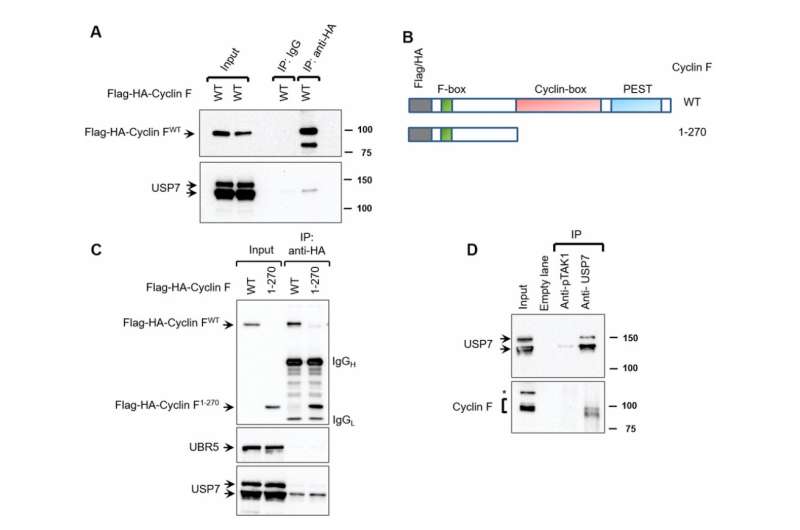The deubiquitylase USP7 found to be a novel cyclin F-interacting protein that regulates cyclin F protein stability

A new research paper has been published in Aging entitled “The deubiquitylase USP7 is a novel cyclin F-interacting protein and regulates cyclin F protein stability.”
Orderly progression through the cell cycle is driven by the periodic oscillations in the activity of cyclin-dependent kinases (CDKs). Cyclin F, unlike canonical and transcriptional cyclins, does not bind or activate any cyclin-dependent kinases. Instead, it harbors an F-box motif and primarily functions as the substrate recognition subunit of the Skp1-Cul1-F-box E3 ubiquitin ligase complex, SCFCyclin F.
By targeting specific proteins for ubiquitin-mediated proteasomal degradation, cyclin F plays a critical role in the regulation of centrosomal duplication, DNA replication and repair, and maintenance of genomic stability. Cyclin F abundance and activity are tightly regulated throughout the cell cycle. However, the molecular mechanisms regulating cyclin F are scantily understood.
In this new study, researchers Savitha S. Sharma, W. Jack Pledger and Paturu Kondaiah from the Indian Institute of Science, Sri Shankara Cancer Hospital and Research Centre and the University of Utah Health’s Huntsman Cancer Institute identified the deubiquitylase USP7 as a novel cyclin F-interacting protein.
“In this study, we identify USP7 as a novel cyclin F-interacting protein and uncover novel aspects of cyclin F regulation mediated by this interaction,” the researchers note.
The team observed that USP7 stabilizes cyclin F protein and that this function is independent of the deubiquitylase activity of USP7. Additionally, their data suggest that USP7 is also involved in the regulation of cyclin F mRNA. Pharmacological inhibition of the deubiquitylase activity of USP7 resulted in downregulation of cyclin F mRNA.
Source: Read Full Article
